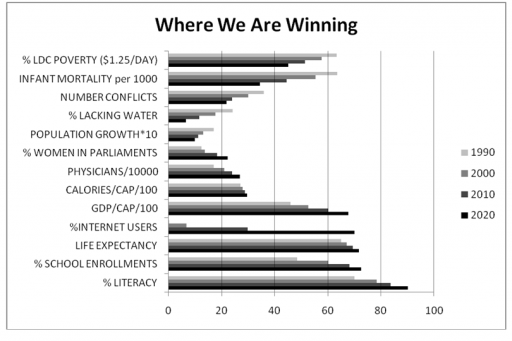Bremmer has best identified this new twist to the story of globalization in his book The End of the Free Market. The title is a misnomer. The book is really about the rise of state capitalism, also the subject of a recent essay by him in this magazine. Whereas 20 years ago, the list of the largest companies in the world was dominated by private firms, it is now dominated by state-owned entities, many from emerging markets. China's state-owned companies now not only utterly dominate its economy -- of the country's top 100 companies, 99 are state controlled -- but also increasingly play a large role on the global landscape. They play by different rules and have different goals than do private corporations from the West.
Although Americans are only 4% of the world's population, they consume 25% of its resources and produce 25% of its unsustainable pollution. The US has 865 foreign bases and a military and CIA presence in every corner of the globe. The country enjoys such a privileged position, this author writes, because it has made itself an imperial power. But the United States' ability to afford the cost of maintaining its empire is waning. Sooner or later, the deficit will force Washington to limit its imperial overstretch and bring its troops home.





